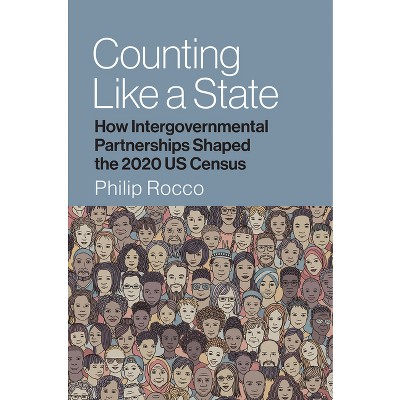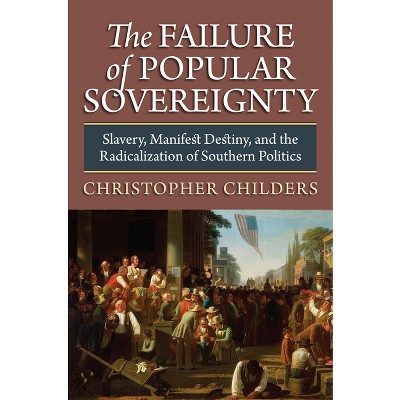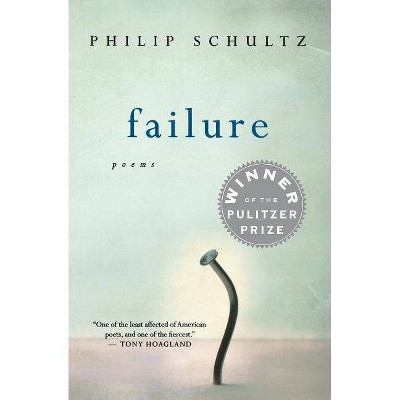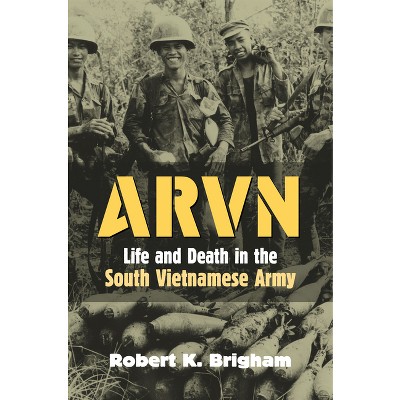Sponsored

Diem's Final Failure - (Modern War Studies) by Philip E Catton (Hardcover)
In Stock
Sponsored
About this item
Highlights
- Often portrayed as an inept and stubborn tyrant, South Vietnamese president Ngo Dinh Diem has long been the subject of much derision but little understanding.
- Author(s): Philip E Catton
- 310 Pages
- History, Military
- Series Name: Modern War Studies
Description
Book Synopsis
Often portrayed as an inept and stubborn tyrant, South Vietnamese president Ngo Dinh Diem has long been the subject of much derision but little understanding. Philip Catton's penetrating study provides a much more complex portrait of Diem as both a devout patriot and a failed architect of modernization. In doing so, it sheds new light on a controversial regime. Catton treats the Diem government on its own terms rather than as an appendage of American policy. Focusing on the decade from Dien Bien Phu to Diem's assassination in 1963, he examines the Vietnamese leader's nation-building and reform efforts-particularly his Strategic Hamlet Program, which sought to separate guerrilla insurgents from the peasantry and build grassroots support for his regime. Catton's evaluation of the collapse of that program offers fresh insights into both Diem's limitations as a leader and the ideological and organizational weaknesses of his government, while his assessment of the evolution of Washington's relations with Saigon provides new insight into America's growing involvement in the Vietnamese civil war. Focusing on the Strategic Hamlet Program in Binh Duong province as an exemplar of Diem's efforts, Catton paints the Vietnamese leader as a progressive thinker trying to simultaneously defeat the communists and modernize his nation. He draws on a wealth of Vietnamese language sources to argue that Diem possessed a firm vision of nation-building and sought to overcome the debilitating dependence that reliance on American support threatened to foster. As Catton shows, however, Diem's plans for South Vietnam clashed with those of the United States and proved no match for the Vietnamese communists. Catton analyzes the mutually frustrating interactions between Diem and the administrations of Eisenhower and Kennedy, highlighting personality and cultural clashes, as well as specific disagreements within the American government over how to deal with Diem's programs and his hostility toward American goals. Revealing patterns in this uneasy alliance that have eluded other observers, he also clarifies many of the problems, setbacks, and miscalculations experienced by the communist movement during that era. Neither an American puppet, as communist propaganda claimed, nor a backward-looking mandarin, according to Western accounts, Catton's Diem is a tragic figure who finally ran out of time, just a few weeks before JFK's assassination and at a moment when it still seemed possible for America to avoid war.Review Quotes
"Catton provides a good analysis of the distrust between the Diem government and the United States. The final chapter discusses the Ngo's 1963 flirtation with the possibility of negotiating peace with the Communists, and the divisions within the U.S. government over whether to support a coup against Diem. This account is short but excellent; balanced, nuanced, and extremely interesting."--Pacific Affairs
"Deserves a wide readership not only among scholars in Vietnamese history, culture, and society, but also scholars of decolonization."--International History Review
"A first-rate account of the Diem regime, its client-patron relationship with the Americans and the inability of both parties to forge a mutually acceptable strategy that would ensure South Vietnam's independence."--Vietnam
"Exceptionally well researched. . . . This book is highly recommended for specialists on the Vietnam War and modern Vietnamese history. . . . It should stand for some time as one of the essential works about the seriously understudied South Vietnamese side of the story."--Journal of Asian Studies
"In reminding readers of our tendency not to understand the forces at work in situations like Vietnam, Catton has served up a lesson that is most relevant to the times, as American forces and administrators struggle mightily to exploit military success in tribal environments like Afghanistan and Iraq."--Parameters
"Catton's engaging study is . . . especially helpful in assessing the nature of nearly a decade (1954-1963) of critical U.S.-South Vietnamese relations. . . . Apart from providing much-needed understanding of the early years of U.S. involvement in the second Indochina conflict, Catton's analysis draws necessary attention to present day international security concerns. Coalition military success in Afghanistan and Iraq is merely a starting point for nation building. As the U.S. embarks on the reconstruction of these countries, senior policy makers would do well to reflect on the dilemma America faced in supporting the 'right' leadership in Vietnam. If such leadership means subservience to American interests and direction, expect trouble. Like Diem, local leaders can only retain legitimacy with their people by maintaining an arm's length from Washington. Diem refused to be an American stooge and was destroyed for his defiance. Having the U.S. as a patron, it seems clear, is a mixed blessing. Thoughtful, thoroughly researched, and filling an important niche in our understanding of this early period of the Vietnam War, Catton's work is highly recommended."--American Historical Review
". . . Provides us with the best account yet of the Diem regime and the countryside. . . "--Journal of Military History
"A fresh and provocative look at a neglected but crucial period during the Vietnam War. Catton's penetrating study explodes the contrasting portrayals of Ngo Dinh Diem as villain or savior to present a more nuanced view of one of the war's most tragic figures."--William J. Duiker, author of Ho Chi Minh: A Life
"A richly detailed and thoughtful study that will force scholars of the Vietnam War to rethink traditional interpretations of the Diem government, the military-political struggle in South Vietnam, and the interaction between the Kennedy administration and Saigon."--Gary Hess, author of Vietnam and the United States: Origins and Legacy of War
"Easily one of the best studies we have of the Saigon government. A major work of lasting value."--Robert K. Brigham, author of Guerrilla Diplomacy: The NLF's Foreign Relations and the Vietnam War











